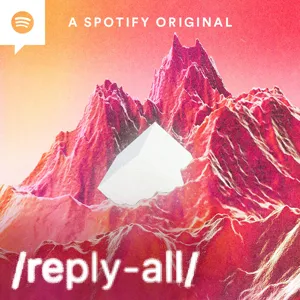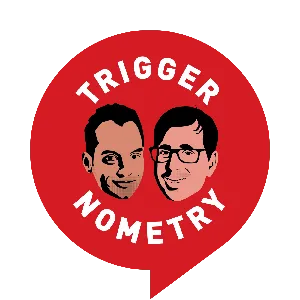Podcast Summary
Understanding People's Questions Reveals Valuable Insights: Exploring frequently asked questions and the motivations behind them can provide valuable insights, especially in the case of young and fact-checkable belief systems like the Mormon church, or personalized insurance plans like State Farm's personal price plan.
People have questions, and those questions can reveal a lot about them. Whether it's through frequently asked questions on websites or a large group of individuals with shared inquiries, understanding what people want to know can provide valuable insights. In the case of the Mormon church, there's a current crisis centered around the Internet and the church's response to it. This situation is significant because of the church's relatively young history – it was founded less than 200 years ago. As a result, much of the Mormon faith's foundational stories and teachings are fact-checkable, making it an intriguing and dynamic belief system. Additionally, the State Farm personal price plan offers a personalized way to save on insurance by bundling coverage options. This plan is based on rating plans that vary by state, and the availability, amount of discounts, and savings depend on individual eligibility. So, whether it's understanding the motivations behind frequently asked questions or exploring the unique aspects of a young and fact-checkable religion, there's always something new to discover.
A Former Mormon's Journey of Discovering Hidden Histories: A former Mormon shares his personal journey of questioning the church's narrative after discovering troubling details about Joseph Smith and the Book of Mormon, highlighting the importance of critical thinking in religious beliefs.
The Mormon faith, like any other religion, is not immune to controversy and hidden histories. John DeLynn, a former devout Mormon, shares his personal journey of discovery when he stumbled upon a biography of Joseph Smith that challenged the standard church narrative. This book revealed troubling details about the historical authenticity of the Book of Mormon and Joseph Smith's involvement in polygamy. For John, this newfound knowledge was deeply disturbing, as doubting the church was seen as a serious threat to his community and family. Despite the risks, John chose to question and reevaluate his beliefs, leading him on a quest for understanding and acceptance within the Mormon faith. This story underscores the importance of critical thinking and the complexity of religious beliefs, even within tight-knit communities.
Sharing personal stories can lead to unexpected connections and a sense of community: Speaking openly about doubts and challenges can tap into a 'huge reservoir of pain' and create a space for others to share their experiences, leading to unexpected connections and a sense of community.
Sharing personal stories and experiences, even those that challenge established beliefs or institutions, can lead to unexpected connections and a sense of community for those who have been feeling isolated. This was exemplified in the story of John Dehlin, who started the Mormon Stories podcast to discuss his doubts about Mormonism and was met with an overwhelming response from others who had similar experiences. Despite the initial fear and uncertainty, John's willingness to speak openly about his doubts tapped into a "huge reservoir of pain" and helped create a space for people to share their stories and feel less alone. The podcast's success was part of a larger trend, with more and more Mormons around the world starting to openly discuss their doubts and create online communities. Even high-ranking church leaders like Hans Herbert Johnny Mattson were listening and engaging with these discussions.
Importance of transparency and open dialogue in religious communities: Religious communities must foster transparency and open dialogue to address concerns and maintain the faith and commitment of their members. Confidential meetings can create mistrust and unease, potentially leading to controversy if information is leaked.
Transparency and open dialogue are crucial for addressing questions and concerns within religious communities. In the discussed scenario, Hans, a Mormon in Sweden, sought answers to questions about historical inconsistencies within his faith. He approached church leaders but was told to stop asking. When Hans researched the issues himself, he discovered the same contradictions and felt compelled to share his findings with others. This led to a secret meeting between Hans, church historian Marlon Jensen, and other interested parties. Although the church intended for the meeting to be confidential, it was secretly recorded, and the recorded information was later shared publicly. The meeting demonstrated the importance of open dialogue and transparency in addressing concerns within a religious community. Marlon Jensen, the church historian, was welcomed by the group and seemed eager to answer their questions. However, the condition of keeping the answers within the room created a sense of unease and mistrust. The secret recording of the meeting ultimately led to the dissemination of the information, causing further controversy. This situation underscores the importance of addressing concerns and questions within religious communities in a transparent and open manner. By fostering an environment of trust and dialogue, religious organizations can help maintain the faith and commitment of their members.
Acknowledging the complexities of the Mormon Church's history: Historians' openness about the church's past, including polygamy and the lack of concrete evidence for the Book of Mormon, signifies its evolution and maturity, allowing members to make informed choices about their faith.
The Mormon Church, like any institution, has a complex history with challenges and controversies. During this conversation, historians answered tough questions about the church's past, acknowledging issues like polygamy and the lack of concrete evidence for the Book of Mormon. This openness is a sign of the church's evolution and maturity, even if it means confirming some doubts for members like Hans. Despite the disillusionment he felt, Hans was faced with a choice: to remain a part of the church and keep quiet about these revelations, or to leave. This moment served as a turning point, highlighting the importance of transparency and honesty in religious institutions.
The Power of Transparency and Open Dialogue in Organizational Change: Transparency and open dialogue can lead to significant change even in deeply rooted organizations. Presenting data and addressing concerns rather than stifling them can result in acknowledgement of mistakes and the publication of previously hidden information.
Transparency and open dialogue can lead to significant change within organizations, even those with deeply held beliefs and structures. In the case discussed, a group of individuals identified a need for reform within the Mormon Church, and in response, they conducted a survey to understand the experiences of those who had doubted or left the church. The results revealed that many felt they had been lied to and that their doubts were not due to sin or laziness, but rather a desire for truth. Despite presenting this data to church leaders, they were met with resistance. Eventually, one leader publicly acknowledged the church's mistakes and the validity of doubters. This acknowledgement led to a wave of change, with the church publishing previously hidden information on their website and acknowledging the reality of Joseph Smith's polygamy. This example illustrates the power of transparency and the importance of addressing concerns rather than stifling them.
Mormon Church's Evolution and Controversies: The Mormon Church experienced significant changes from 2013 to present, with openness and progress leading to advocacy for inclusivity, but also resulting in excommunications and mass resignations due to differing views on LGBTQ+ individuals and women's roles.
The Church of Jesus Christ of Latter-day Saints underwent significant changes starting in 2013, with officials publishing essays to address common inquiries and misconceptions. This period was marked by a sense of openness and progress, leading some members like John to advocate for greater inclusivity towards LGBTQ+ individuals and women. However, John's public advocacy led to his excommunication in 2014. The church's stance towards LGBTQ+ individuals hardened in 2020, leading to a mass resignation of members who felt their values were no longer aligned with the organization. This event underscores the evolving nature of religious institutions and the importance of open dialogue and acceptance. While John no longer wishes to have a formal relationship with the church, the events of recent years have allowed for more open conversations within the Mormon community.
The power of community and connection: Discovering a new community can provide a sense of belonging and purpose, even during the most uncertain times, and help individuals find freedom and growth.
The power of community and connection, especially during times of feeling lost or alone, cannot be overstated. The discussion highlights the story of a man named John, who found solace and belonging in an online community when he was feeling hopeless and isolated. This community, which may be compared to a church in its ability to provide a sense of belonging and shared purpose, gave John a place to go when he had nowhere else. The depth of indoctrination in his previous community made leaving it a significant challenge, but ultimately, he found freedom and opportunity in the unknown. As the quote "only when you're lost, you can be found" suggests, sometimes it takes feeling lost to discover new paths and connections. The podcast "Reply All" explores these themes and more, reminding us of the importance of community and the potential for growth and discovery in even the most uncertain times.






